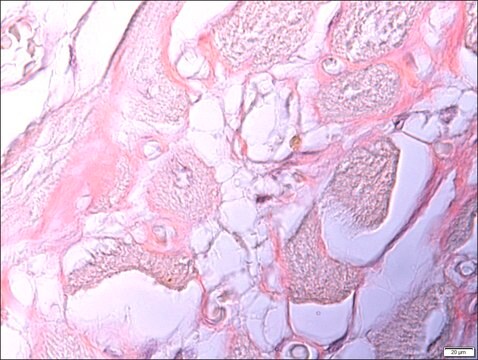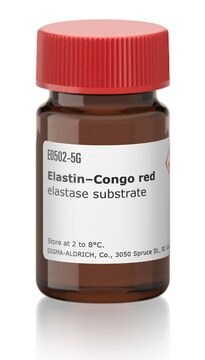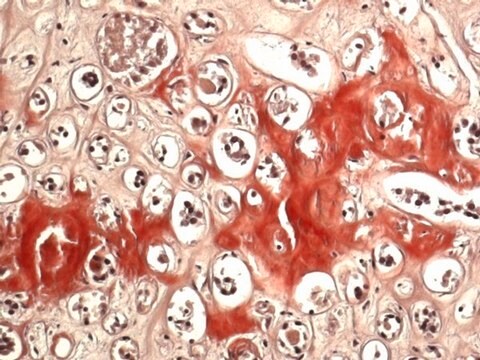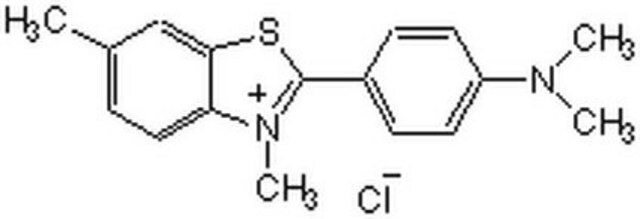C6277
Congo Red
Dye content, ≥85%, certified by the Biological Stain Commission, powder
Synonym(s):
Congo Red 4B, Cosmos Red, Cotton Red B, Cotton Red C, Direct Red 28, Direct Red R, Direct Red Y
About This Item
Recommended Products
Product Name
Congo Red, certified by the Biological Stain Commission, BioXtra
grade
certified by the Biological Stain Commission
Quality Level
product line
BioXtra
form
powder
composition
Dye content, ≥85%
technique(s)
microbe id | staining: suitable
mp
>360 °C (lit.)
solubility
H2O: 10 mg/mL
application(s)
diagnostic assay manufacturing
hematology
histology
storage temp.
room temp
SMILES string
[Na+].[Na+].Nc1c(cc(c2ccccc12)S([O-])(=O)=O)\N=N\c3ccc(cc3)-c4ccc(cc4)\N=N\c5cc(c6ccccc6c5N)S([O-])(=O)=O
InChI
1S/C32H24N6O6S2.2Na/c33-31-25-7-3-1-5-23(25)29(45(39,40)41)17-27(31)37-35-21-13-9-19(10-14-21)20-11-15-22(16-12-20)36-38-28-18-30(46(42,43)44)24-6-2-4-8-26(24)32(28)34;;/h1-18H,33-34H2,(H,39,40,41)(H,42,43,44);;/q;2*+1/p-2/b37-35+,38-36+;;
InChI key
IQFVPQOLBLOTPF-HKXUKFGYSA-L
Looking for similar products? Visit Product Comparison Guide
Application
Biochem/physiol Actions
Suitability
Signal Word
Danger
Hazard Statements
Precautionary Statements
Hazard Classifications
Carc. 1B - Repr. 2
Storage Class Code
6.1C - Combustible acute toxic Cat.3 / toxic compounds or compounds which causing chronic effects
WGK
WGK 3
Personal Protective Equipment
Choose from one of the most recent versions:
Already Own This Product?
Find documentation for the products that you have recently purchased in the Document Library.
Customers Also Viewed
Our team of scientists has experience in all areas of research including Life Science, Material Science, Chemical Synthesis, Chromatography, Analytical and many others.
Contact Technical Service








